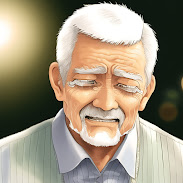Rebuilding After the Ruin
FO U N D AT I ON: LE AR N I N G T O EX I S T WI TH OU T T H E CHA O S
Nobody talks about the identity crisis of healing.
You spent years being the person who drank, the one who numbed, the one who disappeared when it got too hard. That identity was more than just addiction—it was your structure, your ritual, your way of moving through the world. You knew how to exist inside destruction. You knew how to build your life around the next escape.
And now? Now that the crutch is gone—who the hell are you supposed to be?
There’s a misconception that once you remove the addiction, life will naturally rearrange itself into something whole. But addiction wasn’t just a habit—it was a framework. It dictated your relationships, your choices, the way you coped, the way you existed. Without it, there is no automatic reset. There is just the blank space where it used to be.
The hardest part of stopping isn’t stopping—it’s waking up the next day and realizing you don’t know how to live inside the quiet.
The silence isn’t just silence. It is the absence of the thing that once gave you purpose. It is the stark, suffocating realization that you now have to construct a new identity—not from the ruins of your past, but from the uncertainty of what comes next.
No one tells you that healing isn’t about returning to who you were before. You don’t go back. You build forward. You figure out, piece by piece, who you are beyond the need to escape.
And that isn’t a single, dramatic moment of self-discovery. It is a long, often disorienting process of trial and error.
This is what nobody tells you about healing: It doesn’t feel like clarity. It feels like being lost.
And the only way out of it is to start building something new, even if you don’t know what it’s supposed to look like yet.
RE FL E C T I O N:
Now that destruction is no longer your identity, what do you have the chance to rebuild?
What parts of yourself were overshadowed by addiction? Were there passions, dreams, or even simple joys that you abandoned along the way?
What would it look like to create a life that isn’t centered around surviving—but around living?
And what if you don’t have the answers yet? Could you allow yourself to start anyway?
AC T I O N STEP:
This week, start creating a version of yourself that exists beyond survival.
Do something that has nothing to do with recovery. Not because you “should,” not because it’s
a distraction, but because you are more than what you’ve overcome.
Revisit something you once loved before addiction took over. A book, a hobby, a way of moving
your body.
Try something new. Something uncomfortable, something different, something that reminds
you that you are more than just your past.
This isn’t about replacing addiction with productivity. It’s about proving to yourself that you exist beyond what broke you.
Because recovery isn’t just about what you leave behind. It’s about what you choose to build in its
place.


